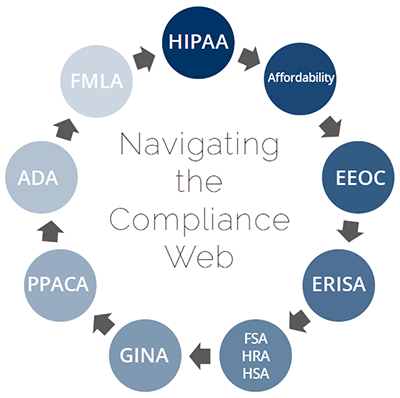When you are trying to navigate the compliance web, being exempt is a good thing-but what is Exempt?
Webster’s Dictionary defines EXEMPT as:
Adjective
Released from, or not subject to, an obligation, liability, etc.
Synonyms: free from, not liable to, not subject to, exempted from, excepted from, excused of/from, absolved of

In todays complicated- regulated world of health care, the above definition makes it easy to see why being “exempt” is desirable. Let’s take a closer look at what that means.
The Department of Labor (DOL) has affirmed to us that “to the extent benefits qualify as excepted benefits, they are exempt from the provisions of Part 7 of ERISA, chapter 100 of the Code, and Title XXVII of the PHS Act, including the relevant provisions added by the ACA.”
As stated above, excepted benefits are exempt. Excepted benefits, as defined by Federal Law, are benefits that are supplemental to a group health plan if provided under a separate policy, certificate, or contract of insurance. These regulations clarify that, for coverage supplemental to a group health plan to qualify as excepted benefits, the coverage must be specifically designed to fill gaps in primary coverage, such as coinsurance and deductible.
To further connect the dots, our A rated carriers have attested that the products we sell through them are excepted benefits and therefore exempt.
What does this mean for you?
By issuing policies, insurance risk and compliance risk are transferred. Our carriers have accepted that risk and the DOL has validated our position. In other words you are protected.

